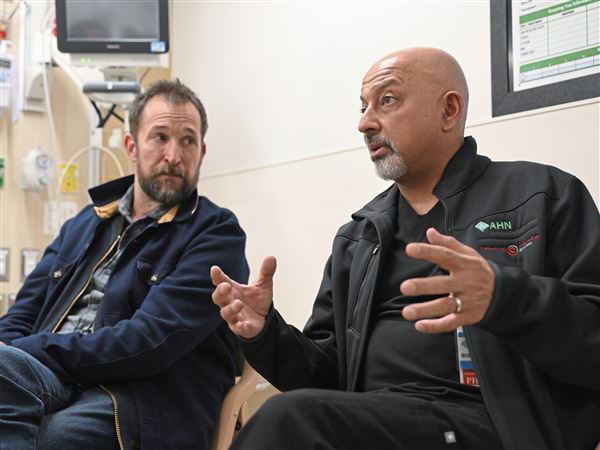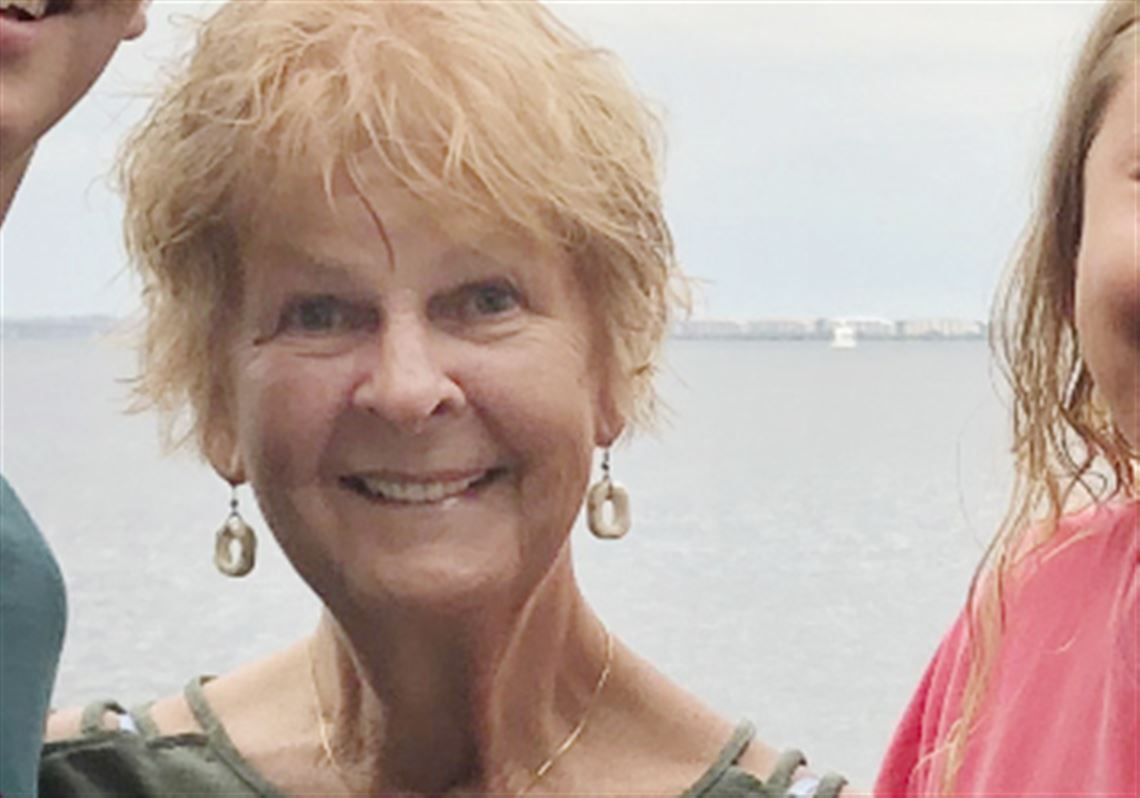A woman died two weeks after cutting her leg while walking along the coast on Anna Maria Island, Florida, according to her family. Her leg became infected with necrotizing fasciitis, commonly called flesh-eating bacteria.
A life in Florida had long been the dream of Carolyn "Lynn" Fleming, who was formerly from the Pittsburgh area but was most recently a resident of Ellenton, Fla.
"Mom only moved down there three or four years ago, but she loved it, and she had so many friends there," son Wade Fleming said.
Mr. Fleming, his wife and their two children had driven down from Charleroi to spend a week with the 77-year-old.
"It was the best vacation and the worst vacation we ever had," Mr. Fleming said.
The family visited Coquina Beach, just a short distance from St. Petersburg, on June 14.
As she walked along the water, a small dip caused Ms. Fleming to stumble. She had a bump on her leg, a three-quarter-inch cut on her left shin, according to Mr. Fleming. A lifeguard cleaned it up and gave her a bandage. She had no unusual symptoms, and they went out with friends that evening.
"She got mad when I tried to make a fuss, you know the way mothers are," Mr. Fleming said.
Her son gave it one more cleaning the next day, put on a bandage from the first aid kit in his car and had to get back on the road to Pittsburgh.
By Saturday afternoon, Ms. Fleming called her family and told them she was in pain. As the weekend progressed, the severity of her wound escalated. On Sunday, her leg had become red and swollen, and her friends insisted that she go to an urgent care facility. She received a tetanus shot and a prescription for an antibiotic.
Friends knocked on her door to bring her the prescription and found her unconscious on her bedroom floor. Her left shin was black. They called an ambulance.
On June 17, she was hospitalized and diagnosed with necrotizing fasciitis, commonly known as flesh-eating bacteria. Surgeries were required to combat the often-deadly infection.
Ms. Fleming had two strokes and kidney failure. "Her entire body is septic," Traci Fleming wrote Wednesday in a Facebook post chronicling her mother-in-law's condition.
Wade and Traci Fleming returned to Florida to be with Lynn Fleming while she was on life support. She died Thursday while Wade held her hand.
Her family hopes that by sharing her story, they can educate others and save lives.
"We are not discouraging people from spending time at the beach," Mr. Fleming said. "We've met many people from Florida who said they've never heard of necrotizing fasciitis."
There are roughly 700 to 1,200 cases reported each year in the United States, according to the US Centers for Disease Control and Prevention. One in 3 people who contract flesh-eating bacteria die from the infection, according to the agency.
Flesh-eating bacteria stop blood circulation and cause tissue to die and skin to decay, according to the CDC. Although more than one type of bacteria can eat the flesh in this way, public health experts believe that group A Streptococcus bacteria are the most common cause of these infections. Vibrio bacteria can also cause life-threatening contamination if someone eats raw or undercooked seafood or gets a wound wet with seawater or brackish water.
Stephen Spann, dean of the University of Houston College of Medicine, said that having a wound exposed to brackish water where these bacteria live is one way to get an infection; eating contaminated shellfish -- "oysters, primarily" -- is another.
Blunt trauma that doesn't tear the skin can also permit entry of flesh-eating bacteria, according to the CDC. Several antibiotics can treat these injuries, though when cases become severe, skin grafts and surgeries may be necessary.
"Your average healthy person is probably not at huge risk," Dr. Spann said, noting that the vulnerable include "people who have some sort of a chronic disease that suppresses their immune function, or maybe they are on immunosuppressive drugs like corticosteroids. Or they have liver disease or a disease called hemochromatosis," a disease that causes an overload of iron in the blood.
No matter your risk, good wound care is the best way to prevent any bacterial skin infection, according to the CDC. It is important to clean even minor cuts and injuries that break the skin with soap and water. Always clean and cover draining or open wounds with dry bandages until they heal. And see a doctor for puncture and other deep or serious wounds.
"Maybe they should consider signs warning people about this at the beach," Mr. Fleming said. "They warn people about jellyfish, and I've never heard of people dying from those."
"Regardless, we hope people have fun at the beach but are careful if they have a cut," he said. "We don't ever want anyone else to have this kind of phone call with this kind of news about their family member."
New York Daily News contributed.
First Published: July 2, 2019, 9:00 a.m.
















